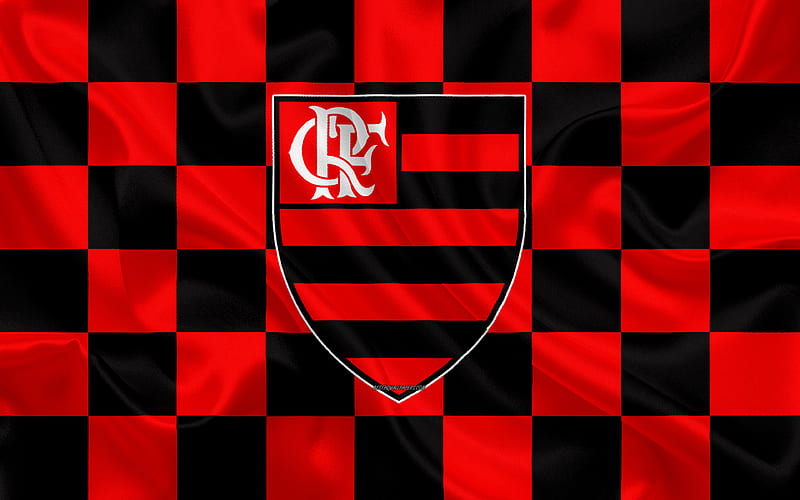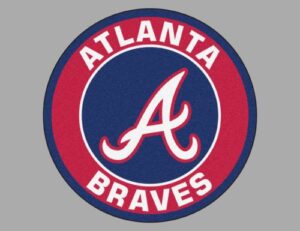
Flamengo FC
Flamengo FC, an iconic Brazilian football club, is renowned worldwide for its passionate fan base, rich history, and impressive trophy collection. Its vibrant red and black colors symbolize more than just a football team; they represent a cultural phenomenon that has captivated millions for over a century. As one of the most successful clubs in Brazil and South America, Flamengo FC stands as a testament to excellence, resilience, and legendary athletes.
In this comprehensive article, we explore the fascinating history of Flamengo FC, celebrate its numerous achievements, and honor the legends who have left an indelible mark on the club and the sport. From humble beginnings to international fame, Flamengo FC’s story is filled with inspiring moments, iconic players, and unforgettable battles on the pitch.
Founding and Flamengo FC
The inception of Flamengo FC marks the beginning of a glorious journey that has shaped Brazilian football history. Understanding the roots of the club offers insight into its cultural significance and enduring popularity keo nha cai 5.
In the late 19th century, football was gaining popularity among the youth of Rio de Janeiro. Flamengo was founded on November 23, 1895, originally as a rowing club, known as Clube de Regatas do Flamengo. It wasn’t until the early 20th century that the club embraced football, which soon became its primary sport. The transition was driven by the desire to expand its athletic horizons and the rising passion for football in Brazil.
During its initial years, Flamengo faced stiff competition from other local clubs, but it quickly established its identity through a focus on community involvement and athletic excellence. The club’s colors—red and black—were chosen to symbolize the fiery spirit and resilience of its players and supporters. In 1912, Flamengo officially embraced football as a competitive sport, setting the stage for decades of success and growth.
The club’s early dominance was characterized by its emphasis on developing homegrown talent and fostering a strong sense of camaraderie. Flamengo’s early teams played in regional tournaments, gradually building a reputation for resilience and skill. The club’s devotion to inclusivity, fostering diverse social backgrounds of its players, contributed to its broad appeal among the working class of Rio.
The 1920s and 1930s marked the period of solidifying Flamengo’s position within Brazilian football. It won its first significant titles, including regional championships, paving the way for national recognition. These foundational years set the tone for the club’s commitment to victory and community spirit, which would define its subsequent era of success.
Key elements of Flamengo FC’s founding and early success:
- Established as a rowing club in 1895, transitioned to football in the early 1900s.
- Known for fostering local talent and cultivating a passionate supporter base.
- Adopted colors of red and black symbolizing fiery resilience.
- Early regional titles built a foundation for national prominence.
Throughout its early years, Flamengo demonstrated an unwavering commitment to football excellence, shaping its identity as a club that champions perseverance and community engagement. These foundational principles continue to influence the club’s ethos today, making Flamengo FC not just a football team but a vital cultural institution in Brazil.
The Rise to National and International Prominence
Flamengo FC’s journey from regional competitors to national giants is marked by strategic growth, significant victories, and expanding international recognition. This evolution highlights the club’s ability to adapt and thrive amid changing football landscapes.
Brazilian football in the mid-20th century was witnessing a surge in professionalism and competitiveness, and Flamengo seized this momentum to elevate its status. The club invested heavily in youth development, training facilities, and attracting talented players. This approach paid dividends, with Flamengo clinching multiple Campeonato Carioca titles—the state championship of Rio de Janeiro—becoming a dominant force in regional competitions.
As Brazil’s national league system expanded in the 1960s and 1970s, Flamengo capitalized on this growth, securing national titles and establishing a steadfast presence in the top tier of Brazilian football. Their success was often rooted in a combination of technical skill, tactical innovation, and an unwavering fighting spirit.
During this era, Flamengo’s reputation grew beyond Brazil’s borders, especially after winning the Copa Libertadores in 1981—a prestigious continental tournament—and claiming the Copa Intercontinental in 1981, which faced off against European champions. These victories marked Malaysia Flamengo’s ascent onto the global stage and introduced their vibrant style of play to international audiences.
The legendary squad of the early 1980s, led by charismatic players such as Zico, Júnior, and Leandro, became the embodiment of Flamengo’s golden era. Their technical mastery and creative play captivated fans and critics alike, confirming Flamengo’s position as a powerhouse in South American football.
In addition to pure talent, Flamengo’s rise was fueled by visionary management, strong supporter engagement, and a relentless pursuit of excellence. The club’s strategic investments in scouting and youth academies paid off, as future stars emerged from their ranks.
Factors contributing to Flamengo’s rise:
- Investment in youth development and scouting.
- Consistent success in regional and national championships.
- Landmark international triumphs, such as Copa Libertadores and Intercontinental Cup.
- Building a legendary squad that influenced football tactics and culture.
Furthermore, Flamengo’s international pursuits reinforced their reputation as ambassadors of Brazilian football. Their success on the continental and global stage fostered rivalries and inspired future generations. The club’s identity as a symbol of hope and excellence continues to resonate with millions of supporters and aspiring players worldwide.
Iconic Players and Legendary Figures
The history of Flamengo FC is dotted with players whose talent, charisma, and dedication elevated the club to greatness. These legends have become integral to Flamengo’s identity and have inspired countless fans and aspiring athletes.
One of the most iconic figures in Flamengo’s history is Zico, widely regarded as one of the greatest Brazilian footballers of all time. His technical skill, tactical intelligence, and leadership qualities helped define Flamengo’s golden era. Zico’s influence extended beyond the pitch—his personality and football philosophy embodied Flamengo’s fiery spirit. The ‘White Pelé,’ as he was affectionately called, scored over 300 official goals for Flamengo and led the team to numerous titles, including the Copa Libertadores and Copa União.
Júnior, another luminary, was known for his versatility—playing as a defender, midfielder, and even a winger. His impressive vision and technical prowess made him an integral part of Flamengo’s tactical setup. Júnior’s leadership in key matches, coupled with his sportsmanship, earned him admiration both within Flamengo and across Brazil.
Leandro, a talented winger, brought flair and agility to Flamengo’s attacking line-up. His dribbling skills and eye for goal made him a fan favorite during the 1980s. Leandro’s contributions helped Flamengo maintain dominance in Campeonato Carioca and national tournaments, reinforcing their legendary status.
Other notable figures include:
- Adriano: Known as ‘Emperor,’ Adriano’s physical presence and goal-scoring ability made him a modern legend.
- Jorge: A consistent performer and top scorer, whose loyalty and passion exemplify Flamengo’s spirit.
- Petkovic: A prolific striker who left a significant mark during his tenure in the 2000s.
Beyond player accomplishments, Flamengo has been home to influential coaches and management figures who shaped strategic direction and fostered the culture of winning. The club’s ability to develop and retain legendary figures is a testament to its excellence in nurturing talent keonhacai.
Insights into their impact:
- Players bring not only skill but also cultural energy that elevates team morale.
- Legends serve as role models, inspiring generations and perpetuating Flamengo’s winning culture.
- The charisma and branding of these icons contribute significantly to Flamengo’s global appeal.
Flamengo’s legends have created a legacy where their influence extends far beyond trophies—embodying resilience, artistry, and a fiery passion that continues to inspire football fans around the world. The stories of these players, their triumphs, and their struggles are woven into the very fabric of Flamengo FC identity.





